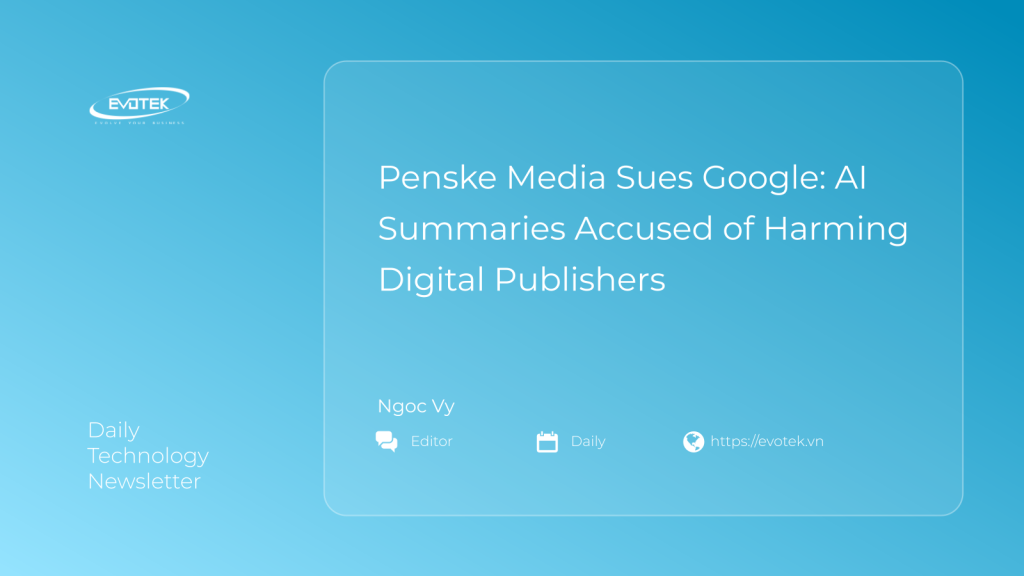The owner of iconic publications like Rolling Stone, Variety, and Billboard, Penske Media, has initiated a significant legal battle against Google. The lawsuit alleges that Google’s artificial intelligence-powered summaries are illegally leveraging publishers’ journalistic content, leading to a detrimental reduction in web traffic and critical advertising revenue for digital media companies.
The AI Overviews Controversy: A Threat to Online Journalism?
At the heart of the dispute are Google’s “AI overviews,” a feature integrated into its search engine. These AI-generated summaries extract and condense information directly from publishers’ websites, presenting a concise version of the content on the Google search results page itself. Penske Media contends that this practice eliminates the need for users to click through to the original source, thereby significantly diminishing website visits that are vital for monetization through advertising and subscriptions.
In a strong declaration regarding the lawsuit, Penske Media stated, “We have a responsibility to proactively fight for the future of digital media and preserve its integrity, all of which is threatened by Google’s current actions.” This sentiment underscores a growing concern among content creators that their valuable intellectual property is being used without adequate compensation or referral, undermining the economic model of online journalism.
Google’s Defense: Enhancing Search, Driving Discovery
Google, through its spokesperson Jose Castaneda, has vowed to “defend against these meritless claims.” Castaneda argued that the AI overviews are designed to make search “more helpful” and increase overall user engagement with the platform. He added, “Every day Google sends billions of clicks to sites across the web and AI overviews send traffic to a greater diversity of sites.” Google maintains that these summaries ultimately create new avenues for content discovery, benefiting a wider array of online destinations.
Widespread Industry Concerns Over Diminishing Referrals
Penske Media is not alone in its apprehension. Other major publishers have voiced similar concerns regarding the impact of AI overviews. DMG Media, the conglomerate behind MailOnline and Metro, previously reported a staggering 89 percent drop in referrals to its websites following the implementation of Google’s AI summaries. DMG Media has communicated to the Competition and Markets Authority that Google’s summaries appear “carefully constructed” to negate any incentive for users to navigate beyond the search results page.
Media analysts are also sounding the alarm regarding the evolving digital landscape. Research group Enders Analysis has cautioned publishers that “search traffic is no longer a given” in this era dominated by artificial intelligence. Douglas McCabe, a prominent media analyst, highlighted in a recent report that publishers are increasingly finding their content “used but not rewarded.” He elaborated, “Many publishers have used their websites to replicate the article format but the website itself is no longer the primary destination for consumers as it struggles to meet expectations, while AI erodes monetisation.”
The Future of Digital Content and Search Engine Dynamics
This lawsuit by Penske Media marks a critical juncture in the ongoing dialogue between technology giants and content creators. It brings to the forefront complex questions about fair use, copyright in the age of generative AI, and the sustainable future of digital publishing. As AI capabilities continue to advance, the outcome of such legal challenges could significantly redefine how online content is discovered, consumed, and monetized, impacting both publishers’ revenue streams and the very structure of search engine results pages.

 日本語
日本語 한국어
한국어 Tiếng Việt
Tiếng Việt 简体中文
简体中文